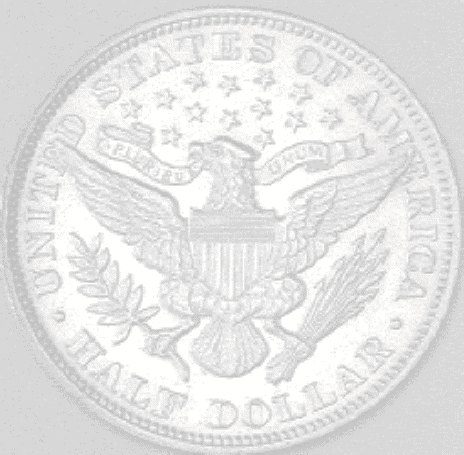
|
|
||
|
|
|
|
|
|
||

-36-
FOR BETTER OR WORSE:
The Bullion Report
In 1810, Great Britain
was on a paper standard. Gold carried a "premium" of 15 percent. Both
the Governor and the ex-Governor of the Bank of England believed the
“value" of gold had appreciated. Parliament appointed a committee to
study the problem. The same year, the committee announced its findings,
and published them in the "Bullion Report." In it they proved
conclusively gold had not appreciated, but that public appreciation of
England's paper “money" had depreciated (White, 119-20).
It is paper "money" and generally not the market
place that affects prices (White, 420-21). It is not the item bartered
that appreciated in value, but currency because it has no intrinsic
value "depreciates" in the minds of people.
Sixty years ago, Americans could exchange
20 "dollars" in currency for 20 dollars of gold. As of this writing, it
requires 350 "dollars" in currency for the same ex-change. Gold is no
more beautiful or precious than it was in 1932. The vast "appreciation"
in "value" is in reality a vivid picture of the true value of paper
"money."
Since "intrinsically” a dollar bill is just a
piece of paper” (Nichols, 3), its “value" lies in the minds of people.
It is unstable as water, and is exchangeable only according to the
confidence people have in the moral integrity and in the strength of
their government. A country that banks on a paper standard banks on
something as changeable as the wind. Ultimately, people's lack of
confidence in the "value" of currency will cause it to decay like any
other compost pile.
"The union of banks has a powerful influence on
the public imagination," wrote Mr. White. “ ...It quiets people's fears
and checks their imaginary wants” (245). Again he wrote that the mines
in California brought gold into the world and thereby added to the stock
of a useful commodity, while the printing of paper “money" added
nothing. "Out of nothing, nothing comes;" and he went on to say "Gold is
the only stable thing going” (183).
Fiat money convinces people governments can
"make" money. "A more damaging lie never gained lodging in the human
brain” (White, 231). It fosters graft and distress. Think of the
unnecessary affliction brought to bear upon the poor! To tamper with the
standards of weights and measures is to defraud widows and orphans, for
as the price for their rent, utilities, food and medicine increases,
they are unable to find as much comfort as before the tampering.
Debt
"At the end of every seven years thou shalt make a release. And this is the manner of the release: every creditor that lendeth aught unto his neighbor shall release it; he shall not exact it of his neighbor, or of his brother; because it is called the Lord’s release. Of a foreigner thou mayest exact it again: but that which is thine with thy brother thine hand shall release; save when there shall be no poor among you; for the Lord shall greatly bless thee in the land which the Lord thy God giveth thee for an inheritance to possess it: only if thou carefully hearken unto the voice of the Lord thy God, to observe to do all these commandments which I command thee this day. For the Lord thy God blesseth thee, as He promised thee: and thou shalt lend unto many nations, but thou shalt not borrow; and thou shalt reign over many nations but they shall not reign over thee." --(Deuteronomy 15:1-6)
According to Deuteronomy
15:1-6, it is God's design that society should be debt free.
Consequently, He limited the duration of loans in Israel to 7 years. No
one has a right to mortgage his future for 20, 30, or 40 years. "Owe no
man anything." (Romans 15:8) Yet, our country exists by debt. The
Federal Reserve system is predicated upon debt. It claims to be able to
"monetize" debt.
Federal and state governments spend money they do not
have, and expect the laboring man to indenture himself to pay it. The
taxpayer is hog tied by such immoral banking practices; nevertheless,
Americans have imitated the example of their government and have
harnessed themselves with personal debt. They "buy" things with "money"
they do not have, and to do it they chain themselves to 18-24 percent
interest. They live by debt.
